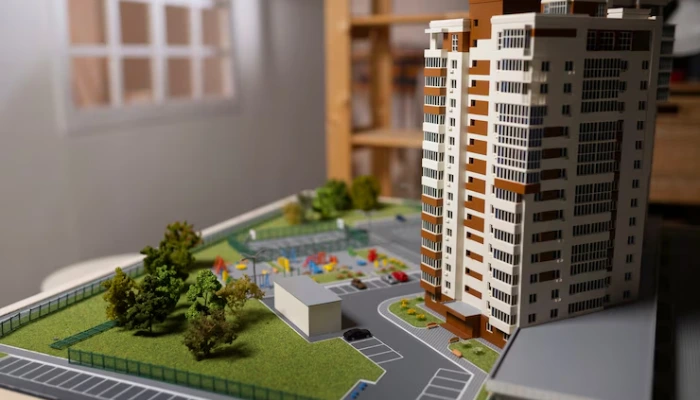Buying belongings is one of the maximum good sized financial selections most people make in their lifetime. Whether you’re shopping a domestic to live in, investing in actual estate, or making plans to hire it out, it’s vital to recognize the bits and bobs before you are taking the plunge.
For beginners, navigating the actual property marketplace can seem overwhelming. From deciding on the right location to information mortgages and legalities, there's loads to recollect. In this complete manual, we’ll walk you thru the whole thing a first-time assets customer should understand to make informed, assured selections.
1. Define Your Purpose Clearly

Are You Buying to Live or Invest?
Your purpose for getting assets will shape nearly each component of your decision—from region and type of assets to financing and maintenance.
Buying to Live: Your attention must be on lifestyle, community, proximity to work/faculties, and comfort.
Buying to Invest: You’ll need to prioritize rental yield, appreciation capacity, and resale price.
Knowing your aim enables you prioritize what is maximum important.
You May Also Like: Buying a House with No Money Down: Is It Possible in 2025?
2. Assess Your Financial Readiness
Know Your Budget
Before you even begin surfing listings, determine out how a great deal you could find the money for. Include:
Down fee
Home mortgage eligibility
Closing expenses
Registration and stamp obligation
Maintenance or maintenance charges
Use on line domestic loan eligibility calculators to get a rough estimate primarily based in your profits and credit rating.
Build an Emergency Fund
Owning assets comes with unexpected fees—upkeep, taxes, coverage, etc. Have at least three-6 months of charges saved as a cushion.
3. Understand Financing Options
Home Loans for First-Time Buyers
- Most first-time shoppers rely on home loans. Before applying:
- Check your credit score (a rating of 750+ improves possibilities)
- Compare interest costs from exclusive banks or NBFCs
- Understand EMIs, processing costs, prepayment expenses
Get pre-permitted for a loan to understand how a whole lot you can borrow. This gives you a stable charge range when house hunting.
4. Choose the Right Location

Location Is Key
- Property price is frequently tied to its area. Evaluate:
- Proximity to schools, hospitals, places of work
- Upcoming infrastructure (metro traces, highways)
Safety and livability
Past appreciation trends within the area
Neighborhood Vibe
Visit the place at some point of the day and night to get a sense for noise degrees, traffic, and cleanliness. Talk to citizens if feasible.
5. Decide on the Type of Property
Ready-to-Move vs. Under-Construction
Ready-to-Move: No waiting, see what you get, no GST, better fee.
Under-Construction: Lower fee, more selections, but delays are common. Risk is higher.
Apartment vs. Independent House
Apartments provide safety and services but come with preservation expenses. Independent homes provide privacy however require extra protection.
New Property vs. Resale
New properties are modern-day but may additionally lack individual or mature landscaping. Resale homes may offer higher places and pricing however should want maintenance.
Read Also: Woy Woy Real Estate Market Trends 2025
6. Legal and Regulatory Checks
Verify Legal Title
Ensure the seller has clear possession of the assets. Ask for:
Title deed
Encumbrance certificate (EC)
Occupancy and completion certificates (for new homes)
RERA Registration
In India, make certain the belongings is RERA-registered. This guarantees duty from developers and protects consumer rights.
Property Tax and Dues
Check that there are not any pending assets taxes, utility bills, or loans connected to the belongings.
7. Work With a Trusted Real Estate Agent

Don’t Go It Alone
A exact real estate agent can:
Help you discover residences that match your budget and dreams
Negotiate with dealers
Guide you thru office work
Highlight crimson flags you may omit
Make certain your agent is licensed and has revel in within the location you're interested by.
8. Evaluate the Property Properly
Visit More Than Once
Don’t rush. Visit the assets multiple instances—at different hours and on weekdays/weekends.
Checklist During Visit
Water and energy supply
Natural lighting and air flow
Structural integrity (cracks, leaks, dampness)
Parking area and constructing amenities
Quality of construction and materials
Take notes or pictures to evaluate later.
9. Understand Hidden and Recurring Costs
Common Additional Costs
Stamp responsibility and registration (five–7% of assets fee)
Brokerage fees (1–2%)
GST (on below-construction belongings)
Maintenance expenses (specifically in gated societies)
Parking costs, clubhouse fees, sinking fund, and so forth.
Ongoing Costs
Property tax
Home insurance
Repairs and enhancements
Make positive to account for a lot of these while budgeting.
10. Make a Smart Offer
Research Property Value
Don’t depend only on what the seller charges. Use:
Online belongings portals
Recent sale fees in the locality
Guidance from marketers or assets specialists
Use this information to make a fair, aggressive provide.
Negotiation Tips
Know the seller's urgency
Don’t display an excessive amount of eagerness
Be equipped to stroll away if the deal doesn’t experience proper
Read Also: Florida Real Estate Exam Prep With Search
11. The Final Paperwork

Sale Agreement
A sale agreement consists of:
Price
Payment plan
Possession date
Terms and situations
Have a legal professional vet it.
Sale Deed and Registration
The final criminal document that transfers ownership from supplier to buyer. It must be:
Registered with the local registrar
Signed within the presence of witnesses
Get a couple of copies and store them securely.
12. Plan for the Move
Inspect One Last Time
Before shifting in, look at the property once more to make certain:
Everything agreed upon is delivered
Appliances and fittings are in area
Cleanliness and safety requirements are met
Update Utilities and Address
Get water and energy meters transferred
Update deal with in ID proofs, banks, insurance, and so on.
13. First-Time Buyer Incentives and Government Schemes
Many international locations offer financial help to first-time shoppers. In India, you can benefit from:
PMAY (Pradhan Mantri Awas Yojana): Interest subsidy on domestic loans
Stamp duty concessions in a few states
Tax deductions beneath Section 80C and 24(b) for home loan principal and interest
Check eligibility and apply early to store money.
Common Mistakes First-Time Buyers Make
Skipping pre-popularity of home loans
Underestimating the whole value
Ignoring legal assessments
Not analyzing excellent print in agreements
Rushing into a buy without studies
Learn from others’ errors and take it slow with every step.
Final Thoughts: Take the Leap, But Do It Smartly
Buying your first belongings is interesting—however it may additionally be intimidating. By teaching your self, seeking the right expert help, and taking a methodical method, you could make a buy that’s each financially and emotionally rewarding.
Property shopping for is not pretty much these days—it’s approximately constructing a secure destiny. So make the effort now to keep away from regrets later.















